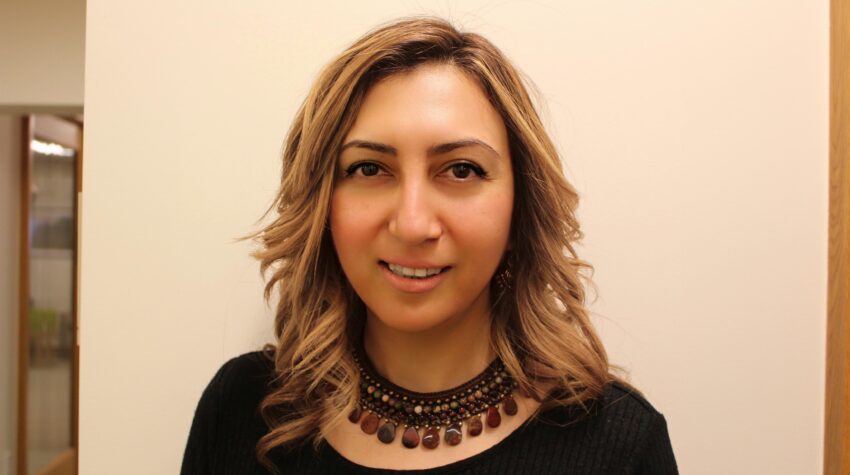
November 16, 2020ProgramTraining the Next Generation of International Women’s Rights Advocates
Salma Waheedi partners with gender justice coalitions to advance legal equality in Muslim communities.
Harvard Law Today recently profiled the work of our Associate Director Salma Waheedi, highlighting her pathbreaking legal practice, law teaching, and advocacy for gender justice and the legal equality of women in Muslim communities across the globe.
The introduction of the article is syndicated below, with a link to the full article, written by Dana Walters.
Since joining Harvard Law School, Salma Waheedi, a clinical instructor and lecturer on law in the International Human Rights Clinic, has devoted a major part of her teaching and clinical legal practice to training students to become effective international women’s rights advocates. A native of Bahrain and a U.S.-trained attorney with a background in constitutional and Islamic Law, Waheedi has led advocacy and social justice-oriented legal projects in partnership with women’s rights activists in Muslim communities. To change the lived experiences of women most acutely, Waheedi and her partners have focused on family law reform.
“Despite its huge impact on women’s lives, it’s an area that receives relatively little attention in human rights circles,” Waheedi said. “We are talking about a system of laws that govern all aspects of women’s private lives, including marriage, divorce, child custody, matrimonial property, inheritance, as well as freedom of movement and work and protection from violence.”
Advocating for family law reform in Muslim legal contexts presents a unique set of challenges and sensitivities. In the majority of Muslim legal systems, Shari’a—Islamic Law—is a part of the constitutional order and often forms the foundation of Muslim family laws. Many of these laws are based on interpretations that entrench gender-based discrimination and fail to protect women’s rights in the family sphere.
Read the full article in Harvard Law Today.